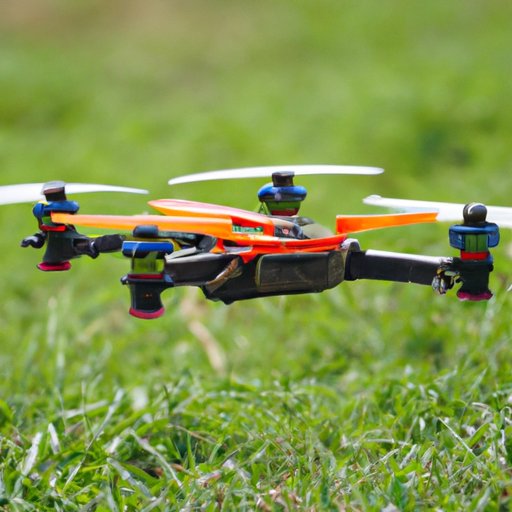Introduction
Remote control is a concept that has been around since the early 20th century. However, with advances in technology, it has only become more prevalent in society. We use remote controls for everything from changing the channel on our TVs to operating unmanned drones. This article is intended to enlighten readers about the world of RC, its evolution, and the many exciting hobbies and applications it encompasses.
The Basics of RC: What it is and how it works
Remote control is a technology that allows the user to operate a device from a distance. The RC device consists of two major components: a transmitter and a receiver. The transmitter is the device in the user’s hand, which sends signals to the receiver located on the RC device. These signals are then used to operate the RC device remotely. RC devices operate on various frequencies, including radio waves, infrared, and Bluetooth.
The receiver on the RC device processes incoming signals, and performs tasks such as moving a servo motor or turning on a motor to make the device move.
Today, many different RC devices are ubiquitous in everyday life, from television remotes to toy cars to sophisticated drones. RC devices can be found in a range of frequencies, power sources, and sophisticated features.
From Toy Cars to Drones – The World of RC (Remote Control) Devices Explained
The first remote-controlled toys were developed just after World War II, but these were too expensive for the average person. Soon, however, toy manufacturers began to produce simpler and more affordable remote-controlled cars, trucks, and boats. Toy RC technology evolved further into helicopters, airplanes, and drones, which have become popular among enthusiasts and commercial users alike.
RC devices are now used for various purposes – including filmmaking, surveying, inspection, racing, and more. Modern drones, for instance, are being used for everything from delivering goods to remote locations and conducting inspections of power lines and other infrastructure. Even entertainment and tourism industries have been taken over by drones, providing breathtaking views and aerial shots of scenic destinations and events.
Everything You Need to Know About RC Hobbies
Remote control hobbies consist of a vast range of activities enjoyed by students, hobbyists, and professionals alike. These activities include aerial photography, drone racing, off-road truck racing, rock crawling, plane aerobatics, and more. When choosing an RC hobby, there are several factors to consider, such as the level of difficulty and skill required, time commitment, and available resources.
Before starting, it is crucial to understand the different types of RC devices, how they work, and how they are controlled. Every RC device is controlled differently – some through a controller, and others through a mobile device. For beginners, it is recommended to start with a simpler device and choose an activity that is easy to learn.
The Evolving Technology and Future of RC Devices
Technology has revolutionized the RC industry, and we can expect many more exciting developments in the future. The use of artificial intelligence and the integration of sensors, cameras, and other advanced components will shape the future of RC devices. Furthermore, we can expect to see advancements in battery technology, signal transmission, and materials that will enhance the durability and efficiency of RC devices.
As technology continues to advance, remote control devices may well become more integrated with autonomous features. For instance, industry professionals have called for drones and other unmanned vehicles to be given more autonomy to carry out dangerous jobs or tasks that humans can’t.
The Thrill of Racing with RC Cars and Drones
RC racing involves competing against other players to finish a course as fast as possible. Racing is a thrilling part of RC culture, which takes place in dedicated tracks worldwide. Nevertheless, it is essential to understand the different types of races and the rules that define them, as well as the best ways to prepare for a race.
RC vs Autonomous Vehicles: Understanding the Fundamental Differences
While it is easy to get confused between RC and autonomous vehicles, there is a stark difference between the two. RC devices require a human operator to control their every movement – there is a considerable distinction between the operator and the vehicle. Autonomous vehicles, on the other hand, are self-operating and the vehicle and operator are one and the same.
The ongoing advancements in autonomous technology and AI have profound implications for the future of transportation. However, autonomous vehicles’ challenges, including cybersecurity concerns and the ethical implications of removing human agency from operating vehicles, make it unlikely to replace RC devices anytime soon.
Conclusion
Remote control devices are everywhere, and the list of their potential uses is seemingly endless. In this article, we’ve covered the basics of what RC devices are, how they work, and explored the many different ways RC can enhance our daily lives. From entertainment to industry, transportation to sport, there is an RC device or hobby out there for everyone.
